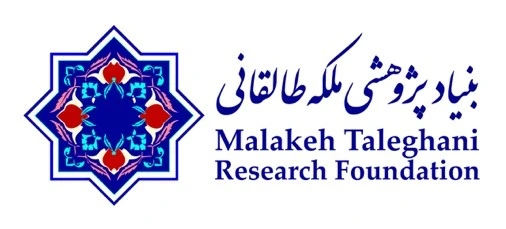
Dr. Malakeh Taleghani (March 1926 – May 2010) was a respected community leader, educator, play write, director and regarded thinker. Throughout her life, she contributed to society in Iran and the United States.
In Iran she was a high school teacher, a principal as well as a professor. Later, she served as Deputy Secretary of The Ministry of Education. She was also a Representative in the Iranian National Assembly. Following her retirement in 1977, she immigrated to the United States where she became an active member and leader in her retirement communities in Portland, Oregon and Tucson, Arizona.
Dr. Malakeh Taleghani received a Ph.D. in Persian Literature from Tehran University and an M.A. in Education from Portland State University. She is the author of The Ups and Downs of the Life of an Iranian Woman, and a co-author of Zan dar Iran-e Bastaan (Women in Ancient Iran). As a lifelong educator and researcher, she was committed to helping students further their educational dreams and goals, particularly students in Iranian Studies. Dr. Taleghani believed that anyone could achieve academic success at the highest level, even within cultures where the role of women was restricted.
The Dr. Malakeh Taleghani Graduate and Undergraduate Endowment in Iranian Studies
Founded in May 2010, this endowment is devoted to support outstanding graduate and undergraduate research in all areas of Iranian Studies, including Persian literature, Iranian linguistics, anthropology, history, geography, political science, architecture, or topics in other areas, broadly conceived. Creative projects in Persian art (including Persian music) are also eligible for Taleghani Scholarship. In 2023, the Taleghani Endowment created a Dissertation/Thesis Award for the best work in Iranian Studies at the University of Arizona.
Taleghani Scholarship
The Taleghani Endowment committee is soliciting applications for the Taleghani Endowed Undergraduate and Graduate Scholarship. Note that this is a new award with new requirements that replaces the previous Taleghani Fellowship.
Eligibility
The applicant must be a University of Arizona undergraduate or graduate student at the time of proposal submission, working on some aspect of Iranian studies mentioned above.
How to Apply
Deadline to apply: February 17, 2025
Application packets must include:
1. A one page statement by the applicant addressing the following points:
a. A clear description of applicant’s area of study/specific research project.
b. The potential contribution of their work to the field of Iranian Studies, and thus its significance with respect to the goals of the Taleghani Endowment.
c. An explanation as to how this scholarship would financially help the candidate towards the completion of their degree/project (for example, living expenses while working toward one's degree, expenses while working on a research project/thesis/dissertation during the summer, conference expenses, interviewing consultants, etc. NO BUDGET STATEMENT IS REQUIRED)
2. CV (resume)
3. Letter from Advisor (should address applicant’s academic status and the significance of their work). It should be sent directly by the advisor to jcarlin117@arizona.edu.
Scholarship winner(s) will receive the award at a ceremony in April 2025. Please ensure that all Taleghani Application materials (PDF format) are submitted to Jcarlin117@arizona.edu by February 17, 2025. Late application packets including support letter or incomplete application packets will NOT be considered. For more information, contact: Joshua Carlin (Jcarlin117@arizona.edu), University of Arizona Department of Linguistics.
Past Recipients and Reports
Roya Kabiri
Linguistics - Dissertation Award
Neural Dependency Parsing of Informal Persian
John W. W. Powell
Linguistics
Corpus of Pashto
Saman Meihami
Linguistics
Verbalization in Sorani Kurdish
Alyeh Mehin
MENAS & SLAT
Ethnography of Private English Language Schools in Mashhad, Iran
Gianni Izzo
MENAS
Constructing the religious self in Shi'i Iran
Sajedeh Hosseini
MENAS
The Ṭuṭīnāma: Text of Ḳˇāja Żiāʿ-al-Dīn Naḵšabī
Shahriar Hormozi
Linguistics
Passive Construction: Comparative Analysis of three Iranian Languages
Mohammed Khan
Middle Eastern & North African Studies
"MA MARD-E-SHARABEEM": Wine, Fraternity, and Kindship in Babur's Timurid Princedom
Roya Kabiri
Lingusitics
Development of an informal Persian syntactic dependency treebank
Fazeh Faezipour
History of Art
The production of art in the 19th century in Iran, particulary photogragy
Aleyh Mehin Jafarabadi
Middle Eastern & African Studies
Language Education in Iran: Challanges and Opportunities
Parvaneh Hosseini
Middle Eastern & North African Studies
Co-operation or Contestation: Female bodies, Activewear, and the politics of Representation in the Islamic Republic of Iran
Roya Kabiri
Linguistics
Conditionals in Persian and Northwestern Iranian Languages
Fatemeh Sharafzadeh
School of Architecture
Cultural Heritage and Building-Intergrated Salt Construction for Air Quality Remediation in Tehran, Iran
Mohsen Mahdavi
Linguistics
Poetic meters in Persian
Ryan Smith
Linguistics
"Second position Clitics in the Gramer of Northwestern Iranian Languages"
Shaghayegh Ansari
Architecture
Adapting Climate Responsive Strategies from Vernacular Iranian Garden to Modern Building Development
An Investigation into Water Usage and Water Efficient Design for Persian Gardens
Seyede Pouye Khoshkhoosani
Middle Eastern and Northern African Studies
Amorous Depiction of Love: Gender, Religion and Power in Classical Persian Poetry
Felisa Hervey
Middle Eastern and North African Studies
A Study of Nadia Anjuman’s Life and Poetry
Rana Nabors
Linguistics
Aspects of Persian Syntax
Kian Alavy
Middle Eastern and North African Studies
The role of formal language instruction in fashioning Iranian national identity during the 1940's
Jovan Erfan
Fine Arts
Ashura, Heech, Parakandegy (Dispersal) and Displacement
Isra Yaghoubi
Middle Eastern and North African Studies
Masterful Culture Bearers? Iranian Jews in the Production of Traditional Persian Music: A Case Study in the U.S.
Julie Ellison
Near Eastern Studies
Sediqeh Dowlatabadi & the easry 20th Century Iranian Women's Movement
Farrah Jafari
Near Eastern Studies
Gender Dichotomy and Transexuality in Iran
Deniz Tat
Linguistics
Complex Predicates in Turkic Languages

